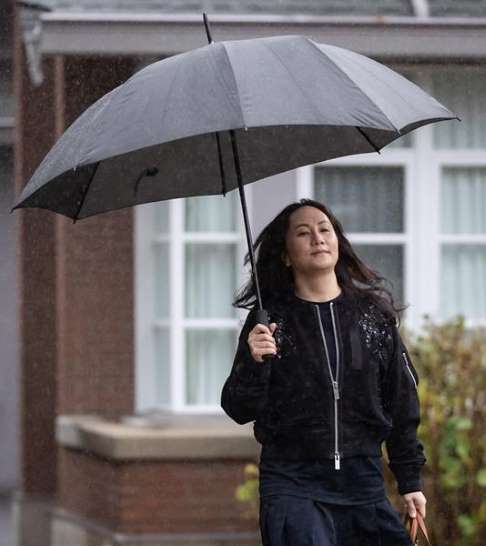VANCOUVER — An RCMP officer tasked with overseeing the electronics seized from Huawei executive Meng Wanzhou says he doesn’t recall a senior officer telling him that he shared information about the devices with American investigators.
Const. Gurvinder Dhaliwal was the “exhibits officer” in charge of documenting and securing anything seized from Meng in 2018 during her arrest, which put a chill on Canada’s relations with China.
Dhaliwal was questioned in B.C. Supreme Court on Tuesday about a note from his supervisor that said Staff Sgt. Ben Chang had provided serial numbers to Meng’s devices to a Federal Bureau of Investigation agent and attributed the information to Dhaliwal.
“I recall no conversation with Staff Sgt. Ben Chang,” Dhaliwal said under cross-examination, adding he only recalls forwarding emails from Chang on to his supervisor.
Dhaliwal is testifying as part of an evidence-gathering hearing where Meng’s lawyers hope to collect information that will support their allegations that Canadian authorities improperly gathered evidence to aid American officials under the guise of a routine immigration exam.
Meng is wanted in the United States on charges of fraud over allegations related to U.S. sanctions against Iran that both she and Chinese tech giant Huawei deny.
She is the company’s chief financial officer and daughter of its founder Ren Zhengfei.
Dhaliwal has told the court that after her arrest, Meng’s file was transferred to the financial integrity branch of the RCMP’s Federal Serious and Organized Crime unit because it was a “complex” case.
He said Chang, a senior officer in the branch, told him in an email that the FBI asked for descriptions of Meng’s devices, including serial numbers, makes and models, and also asked Dhaliwal to take photos.
Dhaliwal told the court that he collected that information with help from an RCMP tech specialist.
Under cross-examination, he said he did not consider doing so would constitute a “search” and did not seek prior judicial authority to do so.
“Would you not agree with me that this is private information you were obtaining from Ms. Meng’s phones?” asked Scott Fenton, one of Meng’s lawyers.
“It did not occur to me at that time,” Dhaliwal said.
Fenton also read a line from an email Chang sent that suggested Chang’s team would forward some information about the devices to the FBI so they could enter a legal request for further sharing.
Dhaliwal said he forwarded the emails to his supervisor but did not recall saying to her that Chang was going to be sharing anything with the FBI.
The court has heard that Chang, a key witness, has obtained counsel and will not testify.
Meng’s legal team has also alleged that a plan was formed the night before Meng’s flight arrived for RCMP to board her plane and arrest her there, but that was later changed.
Ultimately, Meng’s border exam took three hours before it was adjourned so she could be arrested and informed of her rights.
Dhaliwal’s supervisor Sgt. Janice Vander Graaf testified Tuesday that her own superior, acting Insp. Peter Lea, raised the idea of boarding the plane when they spoke on the phone.
She described it as a “strong suggestion” and she communicated it to Dhaliwal that night.
However, Vander Graaf said when she arrived at the airport the next morning, a meeting between border services and RCMP officers was already underway and they had determined Meng should go through customs first.
Vander Graaf, who previously worked in surveillance at Vancouver’s airport, testified that she didn’t challenge the plan.
“It seemed reasonable to me knowing that customs officers have their customs and immigration process,” she said.
Source: Amy Smart, The Canadian Press

